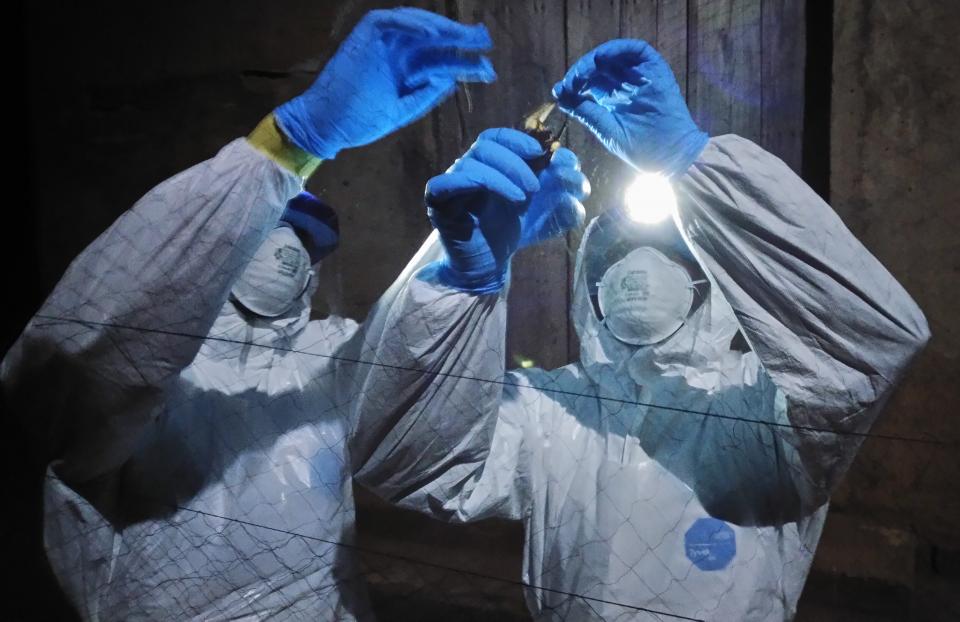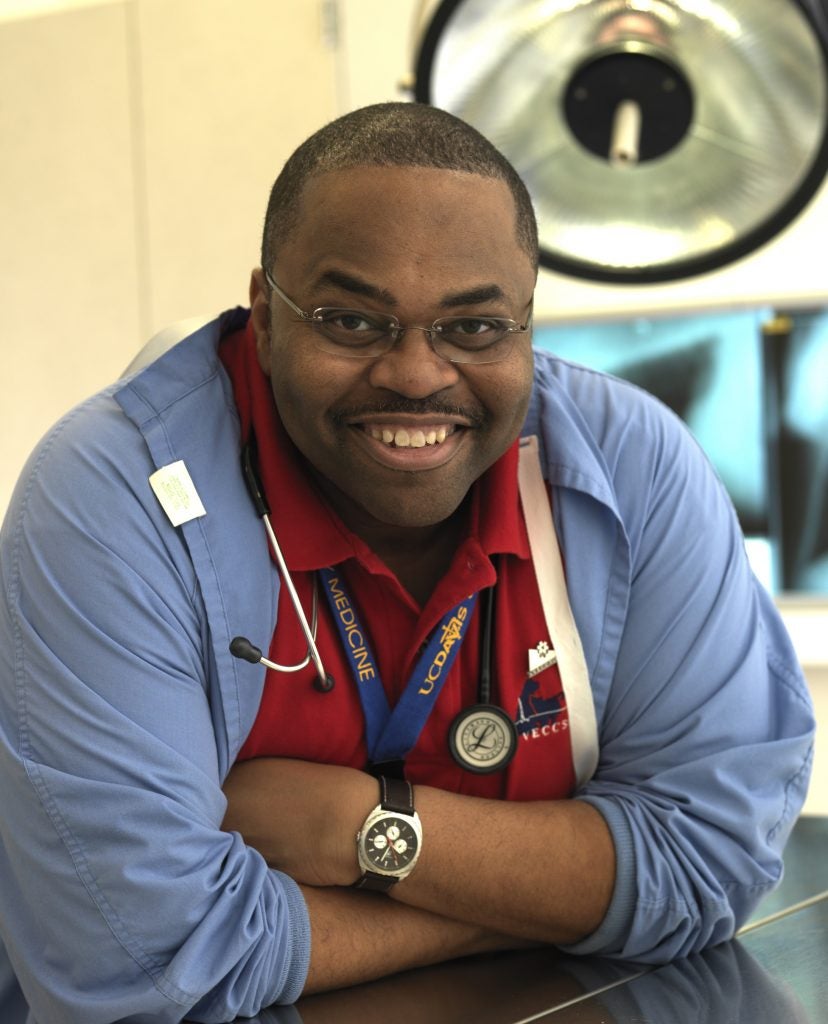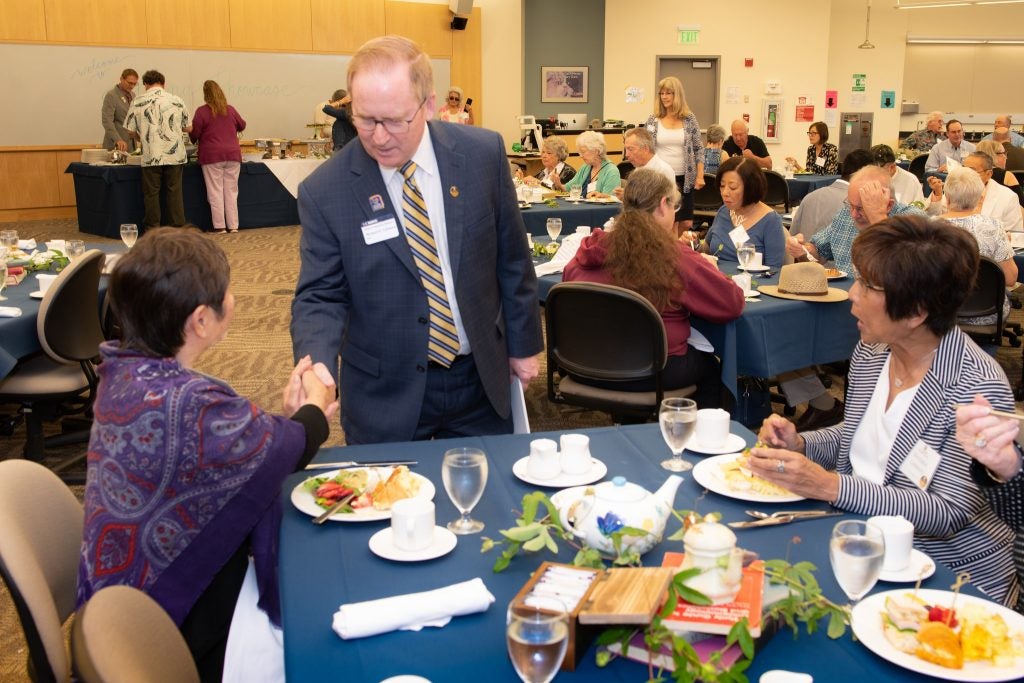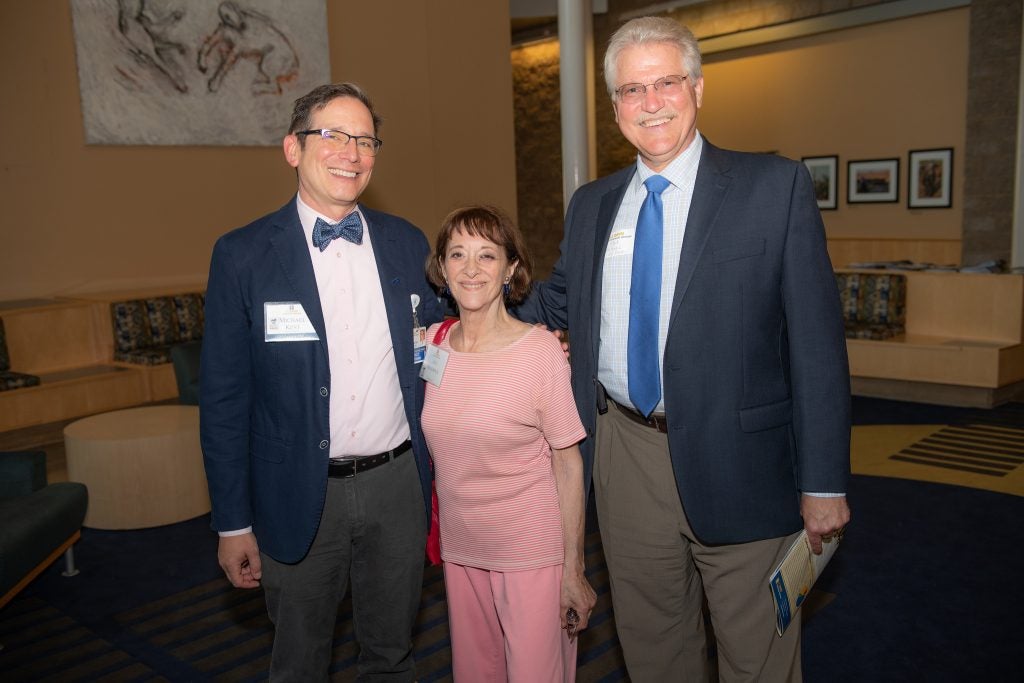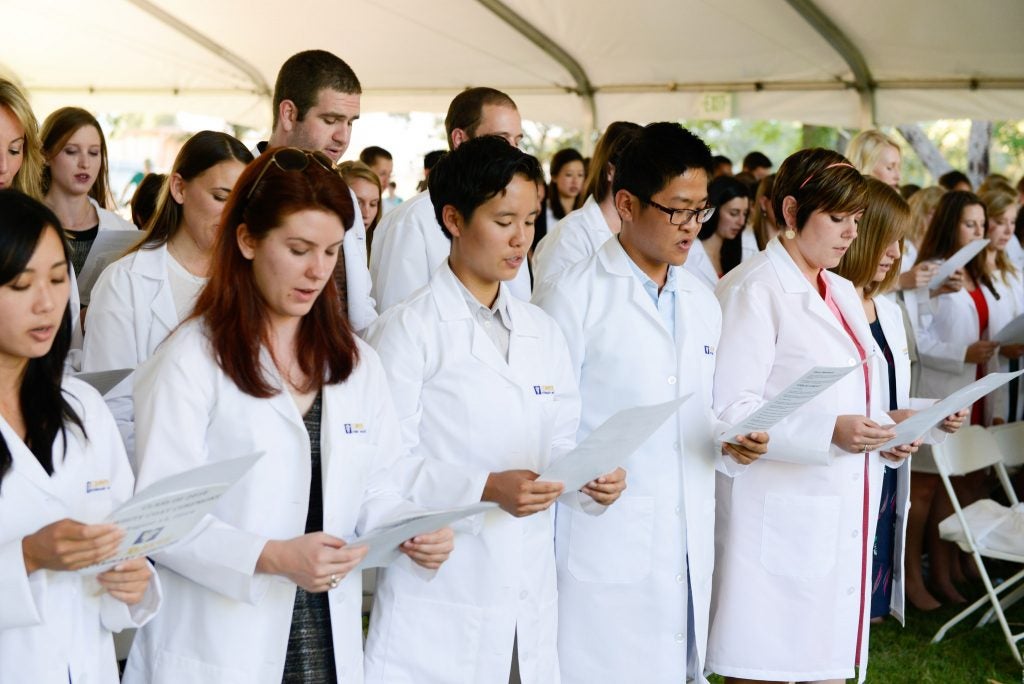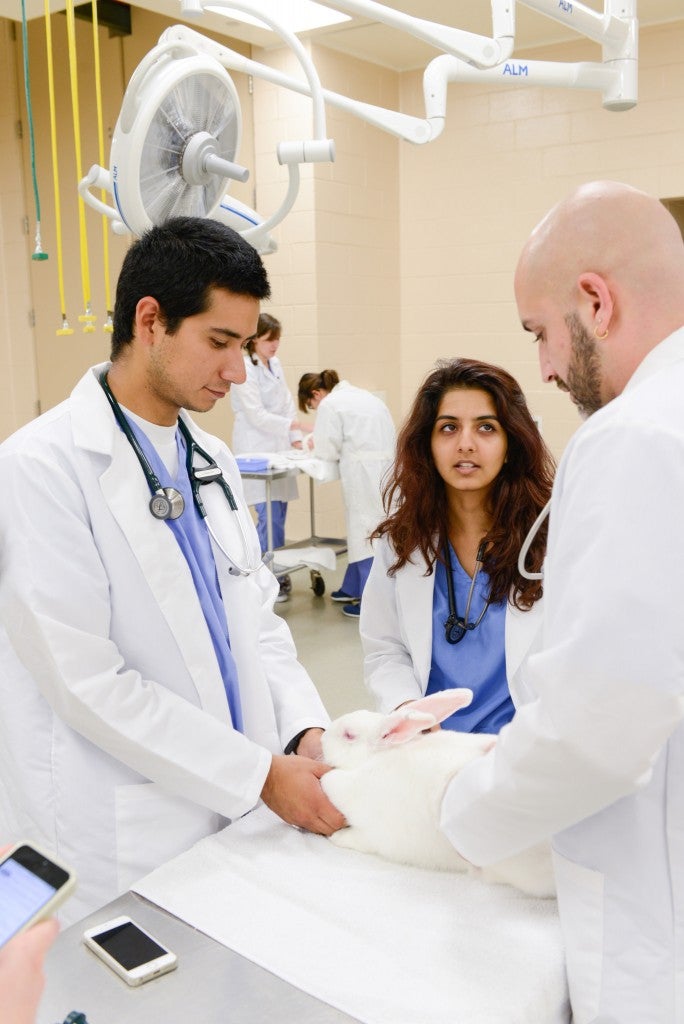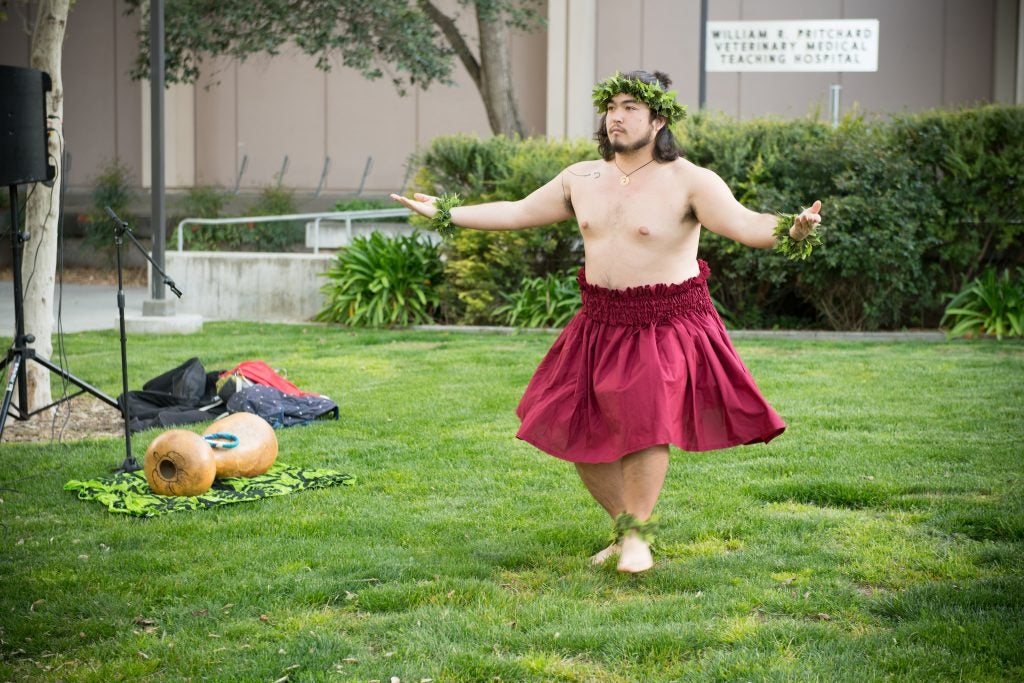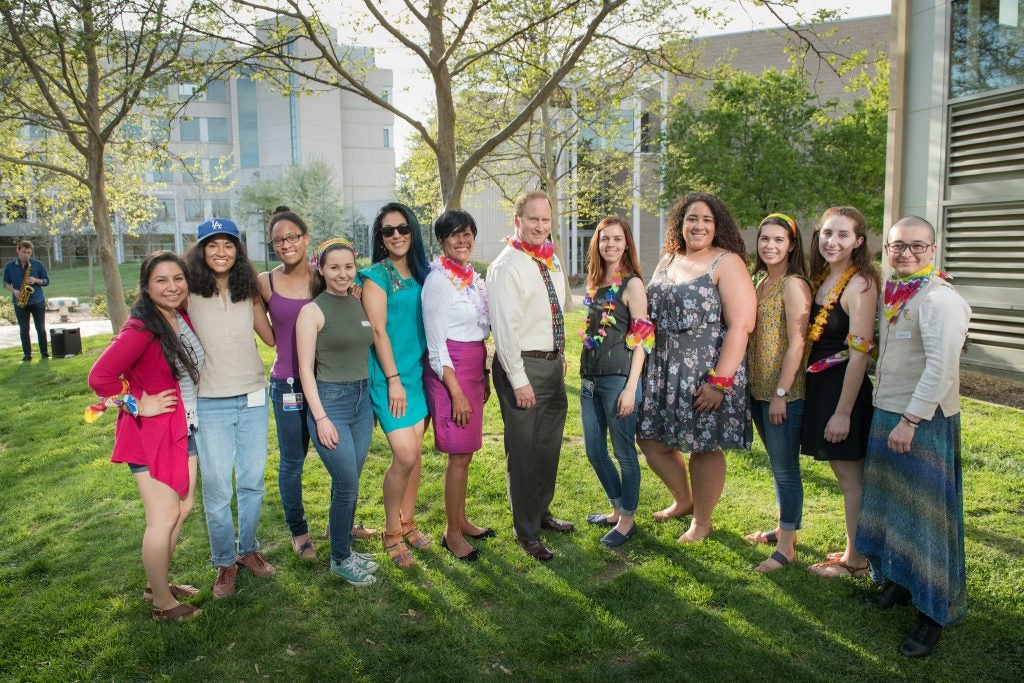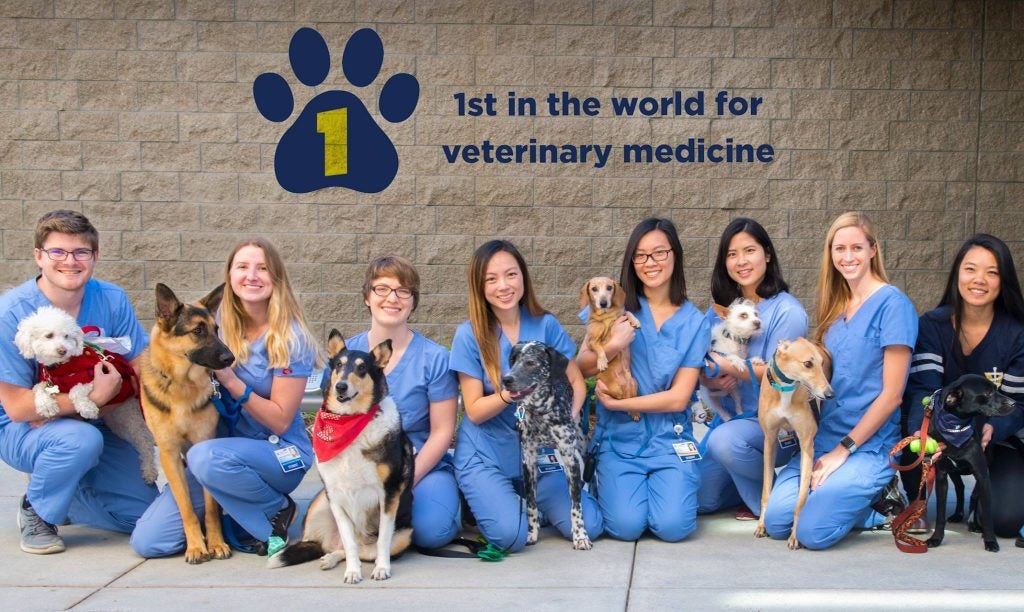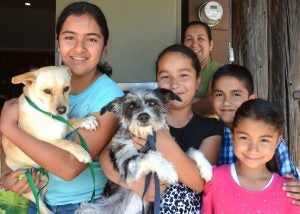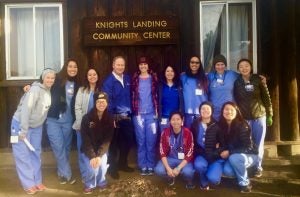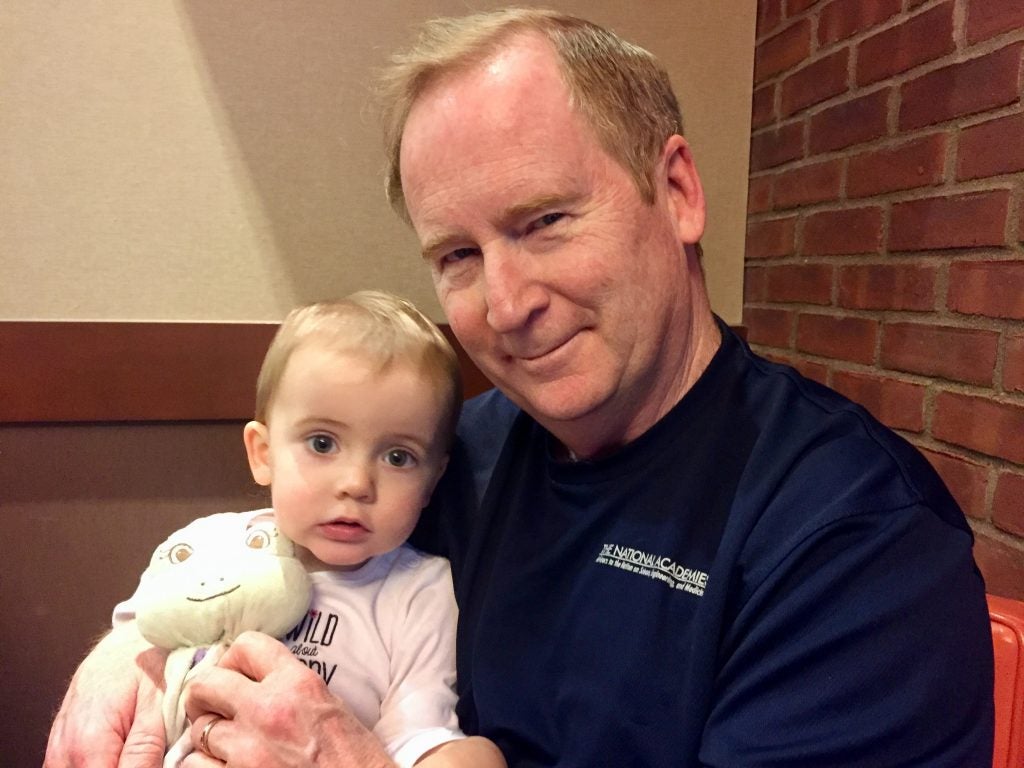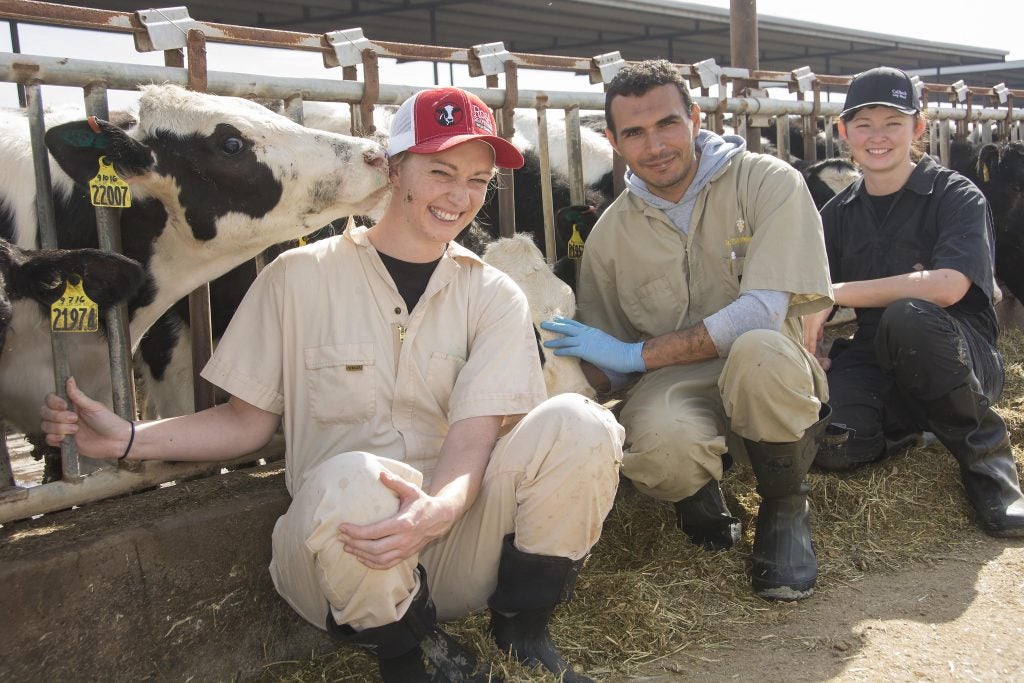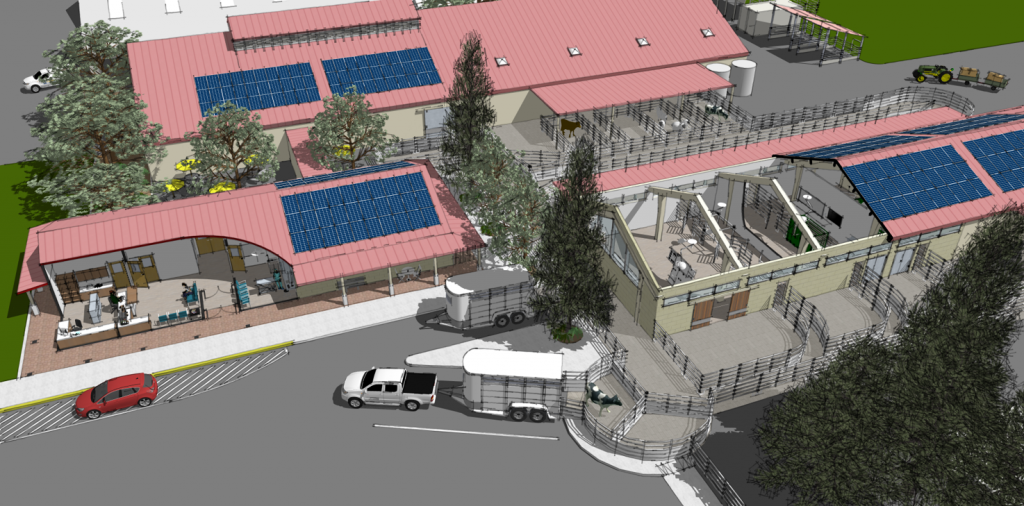“Every great dream begins with a dreamer. Always remember, you have within you the strength, the patience, and the passion to reach for the stars to change the world.” –Harriet Tubman
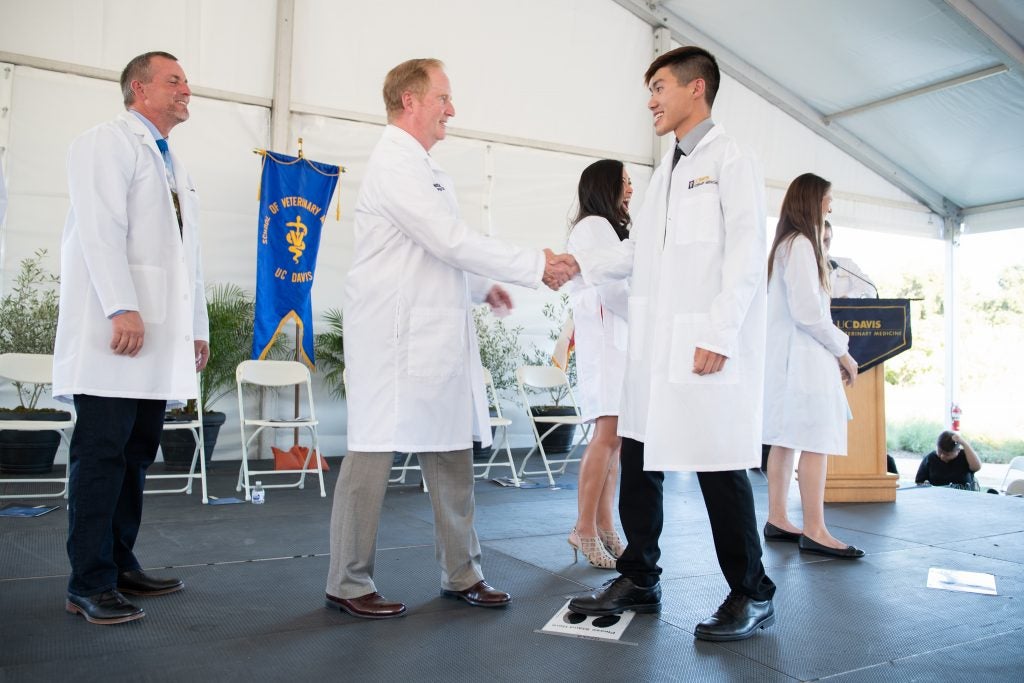 Our recent induction ceremony for the veterinary class of 2022 was a celebration of new beginnings and the fulfillment of dreams. The event represented an academic and career milestone for our new students. Their nervousness and joy was on full display as each walked across the stage to put on the white coat, a symbol of entrance into their professional lives and a first step toward their goal of becoming a veterinarian.
Our recent induction ceremony for the veterinary class of 2022 was a celebration of new beginnings and the fulfillment of dreams. The event represented an academic and career milestone for our new students. Their nervousness and joy was on full display as each walked across the stage to put on the white coat, a symbol of entrance into their professional lives and a first step toward their goal of becoming a veterinarian.
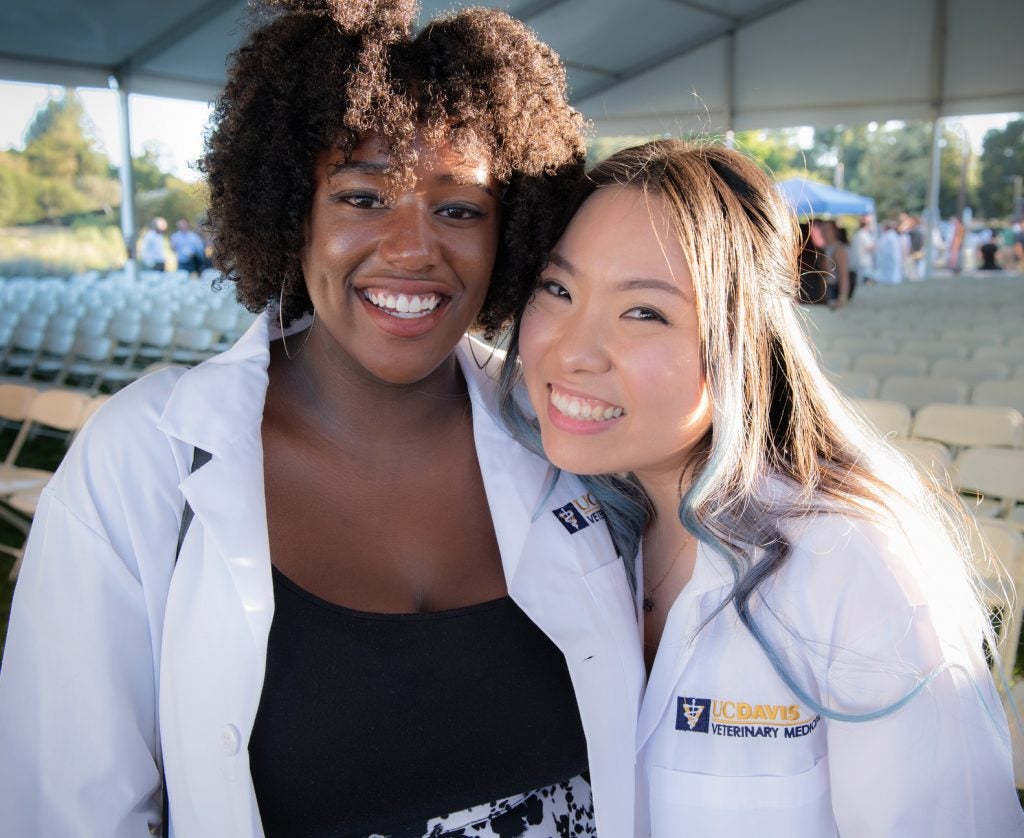 The academic cycle is one of constant renewal as each new class of students comes to us to learn the knowledge and skills that will launch them into the world. Our new class of veterinary students, like so many before them, comes to us with their own histories, talents, and dreams. Each of them has their own story to share with us. As we teach them, they will impact our lives, adding to our own tapestry of experiences.
The academic cycle is one of constant renewal as each new class of students comes to us to learn the knowledge and skills that will launch them into the world. Our new class of veterinary students, like so many before them, comes to us with their own histories, talents, and dreams. Each of them has their own story to share with us. As we teach them, they will impact our lives, adding to our own tapestry of experiences.

